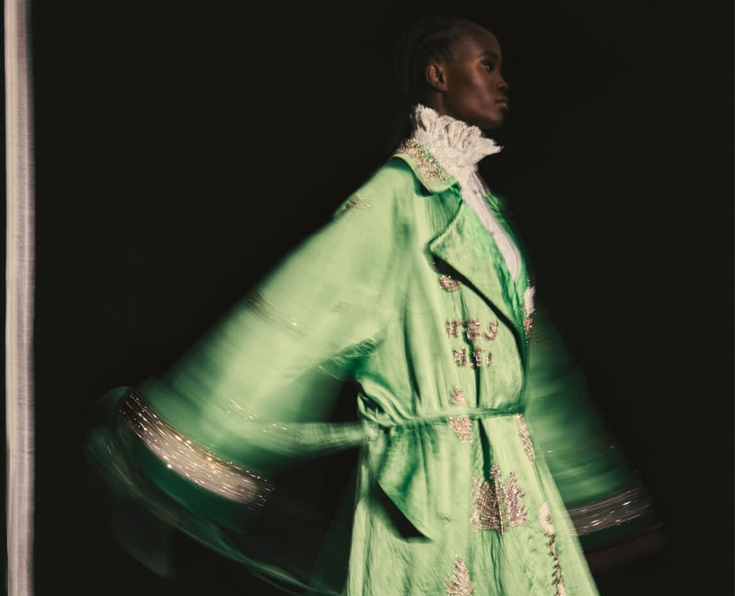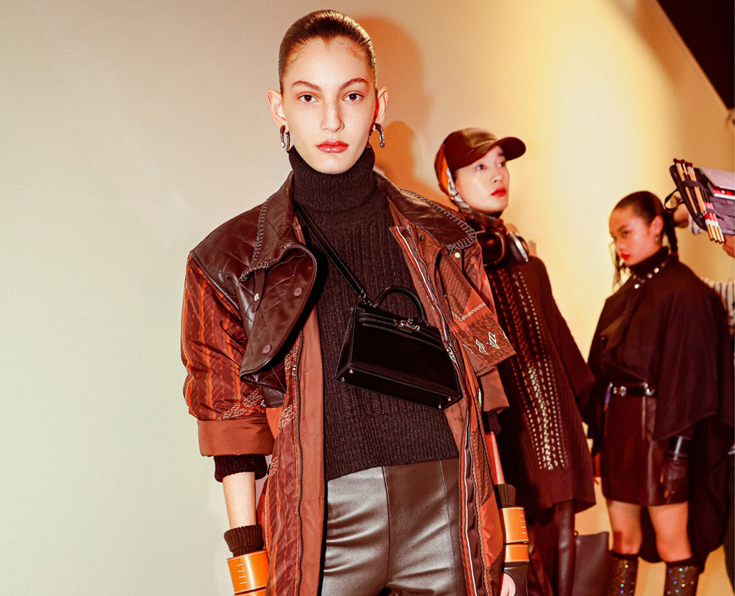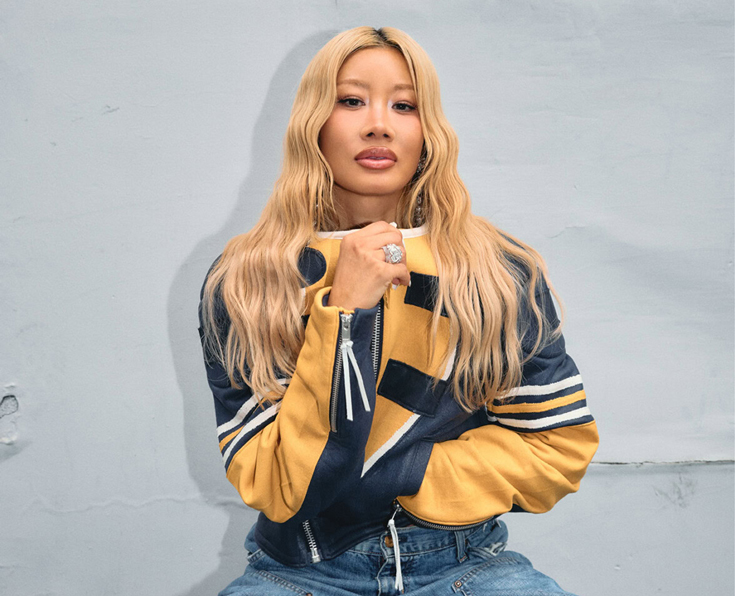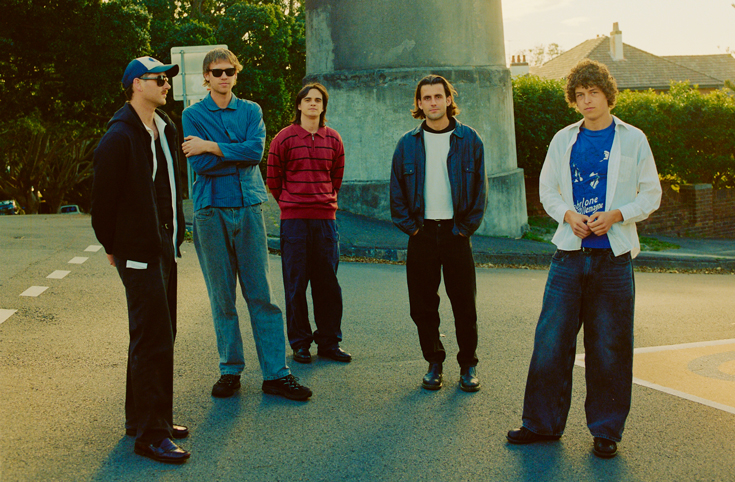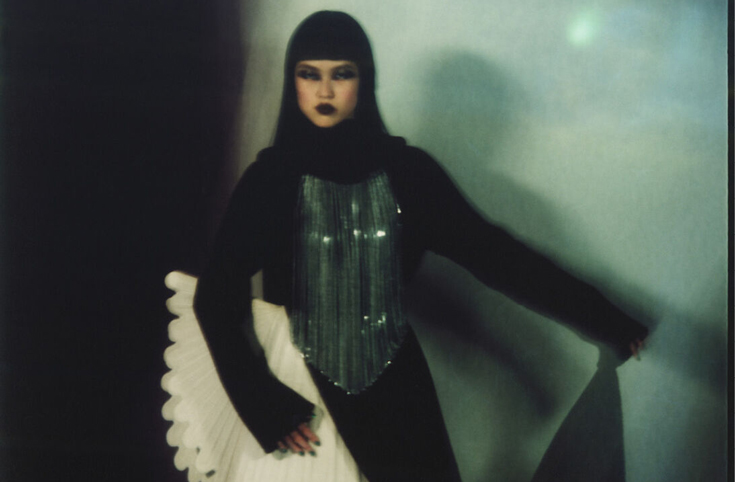Meet The Managers Shaping Fashion
They craft careers, forge relationships between talent and the luxury world, colour the catwalk and shape the fashion industry. Meet the super managers taking a 21st-century approach. It’s less about being a Svengali to a clueless ingénue and more about nurturing a bespoke strategy for talents who are fully invested in their own success. Their aim? To build lasting brands around the individuals they represent.
Kyle Hagler

The founder of the New York-based consultancy and management firm No Smoking, Hagler is hugely ambitious for every client (including Anok Yai, Joan Smalls and Karolin Wolter), keying into what makes them unique and maximising their opportunities and potential.
What’s your approach to management?
Get to know the client in every way, not just in a professional context. It’s their way of life that will inform the strategy, the build and the goals set for the establishment of a transformative business. Throughout the process of representation, I, as a manager, never deviate from the idea that an immense opportunity sits before us. I am trying to take over the world with my clients.
What do you usually look for in the people you represent?
I’m looking for beings and brands that are unique, that have a definitive, extraordinary point of view that is intriguing and captivating. Throughout time, I’ve learnt that this can manifest in any form or fashion, and usually outside the archetype.
How do you define success in 2024, and who has got it?
I think the ultimate success is to attain some level of happiness and freedom.
What are the big differences between talent management today and 10 years ago?
Ten years ago, the discovery and success of a talent within the space of fashion and culture were determined by the validation of established gatekeepers within the industry. Today, because of digital connectivity and instantaneous awareness, not only does the talent have agency over their resonance, but their discovery can happen from the mass public for the gatekeepers to discover later.
What are the personality traits you need to make it today as both talent and management?
Self-awareness and confidence. You must be enthusiastic about the projects that you take on and the beings you partner with. You always have to be ambitious and you have to enjoy it. Fear is never an option!
What’s the biggest mistake that people make on the way up?
Not being kind and considerate. The base of success in this business is rooted in sustainable and scalable relationships – and who wants to work with someone they don’t like?!
What’s more important, money or clout?
In truth, clout without substance gets you nothing but a double tap! None of it matters if you are not comfortable in your being, however!
What’s the wildest request you’ve had from a client and did you say yes?
The craziest thing I was asked to do for a client was to hold a mirror while she shaved her pubic hair… Fuck… and I did it! While looking away, of course.
How do you say no to people?
It’s important to be considerate of the fact that they believe wholeheartedly in their idea. Sometimes they try to get great beings and things inexpensively – who doesn’t?! – so the ‘no’ has to be said with a soft approach.
What has been your career highlight?
Ushering the incomparable Liya Kebede into Estée Lauder as the first woman of colour to represent the brand, in advertising, at that time. Managing Joan Smalls to number one status within the model world. Working with Naomi Campbell. Instigating the instantaneous rise of Anok Yai, [seeing her] step into her power as a creative and an important voice of a generation. I actually cried watching Shalom Harlow get attacked by spray-painting robots at the Alexander McQueen show in London [in September 1998, at the SS99 show]. Having access to the supersonic Concorde airplane that no longer exists. And last but not least, there’s nothing better than being a former analogue girl in a digital world – shoutout to Erykah Badu.
If you weren’t a super talent manager what would you be doing?
Fashion is the way by which I play into my sense of self, my overall sentiment, my highs and my lows, and for that, I really feel like I wouldn’t exist if I wasn’t doing this. I don’t think a plan B would have ever made sense. This is my space, just like it is for so many others and I do believe God would have found a way for me to exist in this space regardless. It’s incredibly awesome to have the capability to help individuals and brands understand and experience the fullest extent of the power and possibility that sits within them!
Paul Rowland

A former model, the creator of Women and Supreme Management, and the president of Ford Models, Rowland is credited with bringing a more diverse, global sense of beauty to the fashion world.
What’s your approach to management?
Management starts with having a clear vision in regard to your client and what vibe you want to portray of said client to the industry at large.
What do you look for in the people you represent?
I’m currently into bringing beauty with a twist back as opposed to trendy ideas. Girls who can cross from editorial to more mainstream clients. Beauty that is somewhat timeless, I suppose.
How do you define success in 2024, and who’s got it?
Anyone who is authentic to oneself. We all have it, we only need to tap into it.
What are the big differences between talent management today and 10 years ago?
For me it’s the same. Believing in a girl and slowly building her career from the ground up, not jumping on the first job or [taking] easy money. Having a plan and sticking to it.
What would you say are the personality traits you need to have to be able to make it today as both talent and management?
One needs charisma and persistence. Believing in oneself and making others believe in you as well.
How important is social media to success?
Having a good social media presence is key to helping others see your personality and authenticity.
What’s the smartest thing an up-and-comer can do to get on – after they’ve signed with you, of course?
Have a positive mindset, be kind and respectful to everyone, and trust the process and their manager.
What’s the biggest mistake people make on the way up?
Thinking that they are not replaceable.
What’s more important, money or clout?
Somehow, they go hand in hand.
How do you say no to people?
Say no in a kind and respectable manner. Saying no is never easy but needed at times.
If you weren’t a super talent manager, what would you be doing?
Tending my farm in Marrakech.
Chris Brenner

Brenner lives in Los Angeles and is the manager of Untitled Entertainment, where he crafts multifaceted careers spanning cultural genres for the likes of actors and models such as Milla Jovovich, Arly Jover, Ever Anderson and Lennon Sorrenti.
What’s your approach to management?
To be passionately enthusiastic. To find a polite way to not take no for an answer. And most important is thinking out of the box.
What do you look for in the people you represent?
Talent, authenticity, natural charm, brains and a sharp sense of humour. I lean toward people who enjoy learning, who show interest in others and in life.
How do you define success in 2024 and who’s got it?
It’s not solely based on monetary gain. Success comes from loving what one does and when you do the rest falls into place. Those who are serious without taking themselves too seriously, who are patient, who are aware of and kind toward others are the most successful in my eyes. Treading lightly and carrying a big stick!
What are the big differences between talent management today and 10 years ago?
The digital age has made work a little less personal, which is the downside, but the upside is how much easier it is to submit talent for projects. Talent have more control over their own images today. Now actors have more control over their initial auditions too. Before they would have to go into intimidating casting offices where they were taped in front of industry people staring at them. Whereas now they can self-tape scenes in their own controlled environment and it falls on them to put their best work forward. I like that. They have more ownership over their destiny.
What are the personality traits you need to make it today as both talent and management?
A great work ethic, having self-respect and respect for others, and being punctual – no one likes to wait. Talent and looks aren’t enough. You have to be someone that works well with others, that directors and photographers as well as filmmakers and clients want to spend time with. If you’re a diva or difficult these days, there is always someone there to take your place. Having good manners will take a person much further than being a jerk
What’s the smartest thing an up-and-comer can do to get on – after they’ve signed with you, of course?
Those who remain true to themselves and are great listeners are always a pleasure to work with. I fight for those who fight for themselves. If you’re waiting around for things to happen and aren’t willing to participate in your own success, then that’s not going to work for me.
What’s more important, money or clout?
Clout. Money comes and goes but earning people’s respect is longer lasting. When you have that everything follows.
What’s the wildest request you’ve had for a client, and did you say yes?
I will never agree to any request for a client that is inappropriate no matter how lucrative the offer might be. Over the years I have found that if it sounds too good to be true, it usually is!
How do you say no to people?
As kindly as possible. I don’t enjoy the idea of knocking anyone’s dream. I always encourage people to persevere and that if they want something bad enough, they will find others who believe in them and want to be on their journey. I don’t believe in wasting anyone’s time. If it’s not working then we decide together to move on.
If you weren’t a super talent manager what would you be doing?
I’d be playing piano in a dive bar or taking pictures for the local paper. Or maybe running a bed and breakfast!
Richard Harbberley

The supermodel agent and founder of Perspective Management made his name repping the biggest and most enduring names in the biz, including Naomi Campbell, Karen Elson, Jean Campbell, Guinevere van Seenus, Eva Herzigova and Emma Balfour. If you want to know how to take a career global, ask Richard.
What’s your approach to management?
Dare to dream the impossible and build a powerful bond of mutual trust with your client.
What do you look for in the people you represent?
An enigmatic allure in front of a camera coupled with a strong work ethic would be a great start.
What are the big differences between talent management today and 10 years ago?
More archetypal ideas of the beauty ideal have been eroded, allowing clients to look through a less-clouded lens.
What would you say are the personality traits you need to have to be able to make it today as both talent and management?
My first question is always, “Do you love fashion?”
How important is social media to success?
I have clients who have no digital footprint and clients who have millions of followers. I don’t think in 2024 you can quantify success on likes.
What’s the smartest thing an up-and-comer can do to get on – after they’ve signed with you, of course?
Learn about fashion, the people and the history, so you can develop a point of view and inspire the people you work with when you are on set.
What’s the biggest mistake people make on the way up?
Blowing up bridges when building them is far more useful.
What’s more important, money or clout?
Clout leads to money in my game.
How do you say no to people?
I say no more than I say yes, so it’s second nature.
What has been your career highlight?
For 2024, it has been working on Naomi’s exhibition at the V&A with the curatorial team.
If you weren’t a super talent manager, what would you be doing?
I would be a classicist and hopefully chatting to Melvyn Bragg on [BBC Radio 4’s] In Our Time about Pericles or Hadrian.
Saif Mahdhi

The Paris-based super agent takes a bespoke approach to his clients (who have included A$AP Rocky, Rita Ora and Travis Scott, as well as Anja Rubik and Caroline de Maigret), maximising their opportunities across the cultural and creative spectrums.
What’s your approach to management?
A good friend once compared my approach to talent management to that of an anthropologist. At the time it made me laugh, but I’ve come to realise she was right. I’ve always been very curious about people. Everyone is unique, but some possess that special edge that sets them apart from the rest. It’s a kind of alchemy.
My work is to recognise those unique traits, strengths and aspirations of each individual artist and help them find strategies and platforms to express that further and to a wider audience. Managing talent requires a deep understanding of human behaviour, motivations and, of course, a strong knowledge of the fashion world both from the perspective of the creative and the industry.
What do you look for in the people you represent?
Every talent is unique. Each has their own creative process and their own vision of the world. It’s my job to help bring that vision to the world. I look for those who exist in the extra mile. Those who stand by their vision and possess a conviction that needs to come out.
What would you say are the big differences between talent management today and 10 years ago?
The birth of social media has completely transformed the landscape. Today, models and talent have their own platform to curate their message.
What are the personality traits you need to make it today as both talent and management?
Curiosity, conviction and focus. This industry demands a lot of you physically and emotionally at times, and you have to be able to navigate that and choose your battles well. Find what grounds you and nurture that.
What’s the smartest thing an up-and-comer can do to get on – after they’ve signed with you, of course?
Listen to advice from a chosen few, follow a strong strategy and trust the process. Be curious and learn about style and culture. Build that unique thing, which is your own vision and approach. That is yours and yours alone. When you have that, no one can take it away from you.
What’s the biggest mistake people make on the way up?
Taking things too seriously. Don’t forget to take a little distance sometimes. The world doesn’t owe you a thing. But building a life of adventure and discovery is about remaining open. “You can’t calm the waves on the ocean.”
What’s more important, money or clout?
What is really important is longevity, this is where money and clout are. Your uniqueness is your value. It’s about building that unique thing that is yours and yours alone.
What’s the wildest request you’ve had for a client and did you say yes?
I once booked a client on a campaign film where the script had a scene where her character had to skydive. It was something she had always wanted to do, but she was nervous. She asked if I’d go with her. I agreed and ended up jumping from a plane at 10,000 feet above the Tunisian Sahara. I’m not sure if it’s the wildest, but it definitely felt like one of the craziest moments.
How do you say no to people?
I kindly explain the reason the project is not right for my client. If people don’t want to understand, I listen and then I firmly say no!
If you weren’t a super talent manager what would you be doing?
I’d probably be a chef and I’d open the best Tunisian restaurant in Europe. People would fly in from all over the world to eat my family recipes. But that’s more of a dream, I don’t believe in having a plan B.
Liz Carpenter

The vice president of IMG Models, Carpenter has spent 25 years at the agency, looking after its biggest names, including Sasha Pivovarova, Precious Lee, Sienna Miller, Liv Tyler, Taylor Hill, Daria Werbowy and Yasmin Warsame. She credits the industry legends Ivan Bart and Maja Chiesi with instilling in her a distinctive, talent-first approach.
What’s your approach to management?
Talent first always and understanding that no two paths are the same. I see every talent relationship as a journey. I treasure communication as our finest tool and love the process of strategic thought, goal-setting and creative thinking.
What do you look for in the people you represent?
Much of it is founded upon organic compatibility. Rather than ‘looking for’ certain qualities in talent, it is more about getting to truly know who you represent and capitalising upon and amplifying their talents, and best qualities. Integrity, drive, trust and patience are also vital.
How would you define success in 2024 – and who’s got it?
Success, today, boils down to uplifting the next generation of talent, designers, stylists, photographers, agents and casting directors – all are contributors to upholding the integrity that we have all striven for over the years.
What are the big differences between talent management today and 10 years ago?
Our industry has massively changed over the past 20 years, but I do not feel that my approach to management has changed much at all. The same roots apply, [it’s] just a different terrain. Communication, grassroots, relationships – these are the fundamentals of representing human beings.
What are the personality traits you need to make it today as talent and as management?
Integrity, a moral compass, strategic thinking, pursuit of happiness, balance, patience, perseverance, creativity and passion.
What’s the smartest thing an up-and-comer can do to get on – after they’ve signed with you, of course?
Sign with IMG Models and be vocal. Ask questions, have ideas, be excited, trust yourself, trust your team, be kind, be patient and work hard.
What’s the biggest mistake people make on the way up?
Overthinking. Take a leap of faith, trust in the process. Say yes. Be open.
What’s more important, money or clout?
That is talent-specific. This is a business and people need to make money and support their families. But clout, which translates to ‘influence or power in voice’, is more important to some than money. Bringing a voice to a generation, a group of people, a community – that could far outweigh money for many. It’s their choice and we support the path.
How do you say no to people?
I am not great at saying no. I am the eternal optimist. Anyone that knows me also knows that this is a flaw of mine. I am a yes person. But the goodness that comes from saying yes far outweighs those times when it doesn’t land perfectly.
What has been your career highlight?
All of the moments spent with our team at IMG, supporting each other, so that we can support our talent on the highest level. Specifically? Picture this – the Victoria’s Secret 2017 show in Shanghai. We had 17 girls in it! So Maja [Chiesi], Mina [White], Luiz [Mattos] and I were Team Shanghai and hit the road together. On the day of the show, all talent had to arrive at the venue at 8am and needed to bring a big bag for the day with their outfit change for the afterparty. Post-show, it was a madhouse of girls getting all gussied up for the red-carpet party, changing into their looks and getting whisked off in cars. Meanwhile the four of us were all hands on deck, to portage all their belongings back to the hotel. But while most agencies had three to five girls’ bags, we had 17. Some were makeshift shopping bags ripping at the seams coupled with backpacks and huge totes – it was a comedy of errors. We laughed our pants off juggling mountains of baggage and wanting to take special care of our talents’ valuables. We distributed all the bags to the hotel rooms of our girls, like Mission Impossible with gumption. It was one of a zillion bonding moments of our family morale, where no job is too small, which pretty much sums up our entire philosophy in management.
If you weren’t a super talent manager what would you be doing?
I would open my own pizza and wine bar named Yellow Bird and cook all day, every day.
Cheri Bowen

As executive vice president at The Society Management in New York, Bowen has impeccable intuition for faces that can cross between the catwalk and the wider culture (and vice versa).
What’s your approach to management?
The crux of everything is still predicated upon the unique humans you’re working with. That’s what informs how you approach each one differently. I’m always open to change and doing things in a new way when there’s an opportunity that feels exciting. We work in fashion, but it’s still very much a cultural industry, which means it’s always evolving, and that’s what keeps it exciting as a manager.
What do you look for in the people you represent?
There’s always got to be the thing that excites you, that makes someone stand out in the way that feels like a story waiting to be developed and told.
How do you define success in 2024, and who’s got it?
Success is defined by the things we value and that looks very different for different people. There are people both revered and celebrated by the fashion industry, but perhaps they’re not all that recognised by a more mass audience. Then you have others who have got that mass recognition and can be considered more commercial. We’re not living in a time of absolutes and, often, the most exciting stories are in the grey.
What are the big differences between talent management today and 10 years ago?
We are working in a very different economy when it comes to things like attention spans, and that means different things hit than perhaps what once did. In the past, it was far less democratic. Today, so many different types of careers are possible and the talent’s role in how they show up in the industry is even bigger because of the channels they control themselves, like their own social media. It’s given the talent more power again, which as managers is always a good thing.
What are the personality traits you need to make it today as both talent and management?
Both the significant shift into moving image and what now feels like an obligatory social media presence have required additional traits. For talent, being telegenic, or more extroverted, or at least willing to live in a much more public manner by sharing more of your life than you once had to, does come into play with the personality required to do well. As for management, it’s equal parts having a sufficient amount of reverence for the industry to understand its history and references, and having the continued curiosity to be a voracious consumer of culture, while staying well versed in the state of things as they are today. Without those two sides of the proverbial coin, it’s easy to develop blind spots and miss potential opportunities for your talent.
What’s the smartest thing an up-and-comer can do to get on – after they’ve signed with you, of course?
Work ethic is universally invaluable. It takes a great deal of endurance and resilience to succeed in this business. Having a sense of self while simultaneously being an incredible collaborator with different creative partners is always magic.
What’s more important, money or clout?
Typically one informs the other, but the ideal is of course always to have both art and commerce.
How do you say no to people?
I think that I’m pretty diplomatic, but perhaps this is a question better suited for those I’ve said no to.
What has been your career highlight?
The opportunity to shape and nurture the careers of so many talented individuals. Watching them grow and succeed, knowing that I played a part in their journey, brings me immense satisfaction. Equally, I have had the opportunity to build The Society alongside so many wonderful people and friends whom I deeply respect. The collaborative spirit and mutual respect we share has made this journey incredibly rewarding. I am blessed.
If you weren’t a super talent manager what would you be doing?
As a Sagittarius, I gravitate towards professions that allow me to explore one’s natural curiosities and use my intuition. I need to travel and constantly strive to have new experiences. I also love the element of adventure and unpredictability in this career. OK… Top three – entrepreneur, head of the CIA or a time traveller.
Youssef Marquis

This industry powerhouse is at the forefront of VIP relations. His Paris-based agency, Marquis, which is only a year old, connects luxury brands (LVMH and Alaïa among them) with talents and vice versa. It creates meaningful, memorable partnerships that cut through the cultural white noise.
What’s your approach to managing a brand’s celebrity relations?
The approach is that there should be no approach. Each brand and designer is so different, so I really try to make sure each strategy we put forward for each brand in terms of community only looks like them and makes sense for them. You need to want to play that game and create a community that looks like you and magically sits somewhere between highly strategised and highly spontaneous.
How do you help brands stand out in the luxury market?
It all starts with identity. If you stand for something, if your message, visuals and product converge to a point of being able to be recognised, then the alignment we will bring to maximise it is only the finishing touch.
What are the big differences between the way brands work with talent today and 10 years ago?
The digital era changed everything. Brands used to be interested in talent for pure awareness reasons, to increase their brand rep, get the name out there. Today, there is a commercial reality to a lot of these relationships because social media made it all tangible. You know exactly how engaging, how performative or how boosting for your business a talent is. At the end of day, what hasn’t changed is that brands still need to sell a dream and these giant catalysts help them do so in fast, efficient and visible ways.
Who are your top clients?
I created the agency last year in partnership with the LVMH group, so they remain our top client. But we also have an amazing roster of brands, such as Alaïa, Jacquemus, Jil Sander, Swarovski and others that we work with on a yearly basis. We also cast ambassadors and celebrities for standalone campaigns or editorial projects.
What do you look for in talent for your brands to partner with?
Definitely authenticity. Of course metrics are important and often the brands place them at the top of their search, but that’s not what I look at first. What I look for the most is status. Major status.
How do you define success in 2024, and who’s got it?
Honestly, in this twisted world, if you’re happy, I think you’ve made it. I’d say the same applies to brands and talents. When you can have fun with it, it leaves so much more room for creative success.
What are the personality traits you need to have to make it today as talent and as management?
Don’t stress. I know it’s easier said than done but that’s how I got to unlock the most complicated situations, by not letting anxiety take over and learning to control those moments as best as you can. It frees the mind to take better rational and creative decisions all at once.
How important is social media to success?
Key, of course. But it can also be completely ignored when status is there. Do we think Meryl Streep needs Instagram to be one of the biggest legends of our time? It’s tougher for the young talent, they need to market themselves and exist, but I’ve seen some new people get around it and assert brand power without it.
What’s the smartest thing a talent can do to build relationships with luxury brands?
Stand for something. When I look at someone like Chappell Roan, who’s the most recent mind explosion I’ve had in the pop world, she pushes the boundaries with authenticity. It’s empowering, it’s inspiring. It only works because the body of work is amazing. It all converges at the same time and makes her an ideal face for a brand.
What’s the biggest mistake people make on their way up?
Forget the people who helped them get there.
How do you say no to people?
I never struggled with that. I just say no. But always explain why, and the key is to always have an alternative that leads to a yes.
What’s your career highlight?
Meeting Riccardo Tisci – that was a defining relationship for me. Orchestrating the Givenchy royal wedding dress on Meghan Markle. And creating Marquis – I feel that everything was probably always leading up to that moment.
If you weren’t running your agency, what would you be doing?
I would love to say astronaut or secret agent, but who am I kidding?! I would have done something that allows me to pet dogs all day. All kinds of dogs, every day
Ali Kavoussi

Photography courtesy of IMG
As managing partner and owner of The Lions agency, New York-based Kavoussi prides himself on empowering his talent, amplifying their reach and opportunities across many platforms. If you’ve got it, he will spot it. His favourite career arc? When a talent’s hidden potential comes to light in a big way.
What’s your approach to management?
It’s centred on honesty, resilience and determination. I prioritise clear and truthful communication by standing firm on my convictions and viewing challenges as opportunities. I believe effective leadership starts when you’re faced with a ‘no’, turning obstacles into chances for innovative solutions.
Who are your top clients?
Amelia Gray, Candice Swanepoel, Georgia May Jagger, Eva Herzigova, Honey Dijon, Isabeli Fontana, Kate Upton, Lara Stone, Sora Choi, Steinberg, Valentina Sampaio, Kris Grikaite, Frankie Rayder, Coco Rocha, Kristen McMenamy, Jerry Hall.
What do you look for in the people you represent?
Confidence.
How do you define success in 2024, and who’s got it?
Defining success in 2024 really comes down to being happy and working with talent that has good working ethics and respect for everyone.
What do you think are the big differences between talent management today and 10 years ago?
Ten years ago, Italian Vogue celebrated its 50th anniversary with a cover that featured an array of unique fashion models [such as Naomi Campbell, Linda Evangelista, Amber Valletta and Karen Elson], each epitomising the essence of real fashion modelling. Following that brilliant cover, the rise of social media and platforms like Instagram significantly broadened access to what was once a very exclusive industry. The shift has transformed the modelling landscape substantially. Today the field is more inclusive, which allows virtually anyone with a social media presence to pursue a modelling career.
What are the personality traits you need to make it today as both talent and as management?
To succeed as a talent manager today honesty is paramount, as it builds trust with clients and maintains professional integrity. Fearlessness is also critical, as it enables one to seize opportunities and navigate the uncertainties of the entertainment industry. Being unapologetic and assertive helps in advocating effectively for clients’ interests. A sense of humour can lighten interactions and strengthen relationships, while toughness is necessary to handle challenging situations and negotiations firmly when required.
How important do you think social media is to success?
Its significance in the modelling industry cannot be overstated, particularly depending on the career path one chooses. While many top high fashion models are successful within their niche, they often remain unknown outside fashion circles. Social media has become crucial not only as a platform for visibility but also as a means to generate income.
What’s the smartest thing an up-and-comer can do to get on – after they’ve signed with you, of course?
Sign with an agent who has a good reputation and good talent that you aspire to be like one day.
What’s the biggest mistake people make on the way up?
Thinking your shit don’t stink.
What’s more important, money or clout?
Depends on the situation.
How do you say no to people?
A simple no.
What’s would you say is your career highlight?
One of my most memorable career highlights is the transformative journey I take with commercial models who are overlooked in high fashion. I find it incredibly fulfilling to help them break through into the fashion world as celebrated icons. Each transformation is a testament to the hidden potential that I love to bring to light.
Mina White

The IMG Models’ director Mina White was mentored by two of the best in the biz: the late Ivan Bart and Paul Rowland. For her, visibility counts and she strongly believes in bringing more diversity to fashion.
What’s your approach to management?
There’s no one approach to management, as each talent as an individual has their own unique way in which they like to work. If there’s one thing I bring to my work it’s being honest and communicative. I’m not always warm and fuzzy, but I love hard and my clients know that I’ve got their best interests at heart, always.
Who are your top clients?
They are all top clients – some notable names include Xiao Wen Ju, Paloma Elsesser, Amanda Murphy, Natalia Bryant, Richie Shazam, Hari Nef, Jill Kortleve and Ashley Graham.
What do you look for in the people you represent?
I look for personality, for a soul connection, a little crazy, a lot of thoughtfulness and a work ethic. Anyone can be beautiful, but to have drive, charisma, passion – that is not something you learn along the way. It’s the ‘it’ – that theory of you either want to be them or be their best friend.
How do you define success in 2024?
It has been a unique year. We have seen the pendulum swing towards an era that can feel a little one-dimensional with an emphasis once again on thin and white. I think success ultimately lies in talent being authentically and unapologetically themselves. Rising beyond the trends and bringing value and integrity to every project.
What are the big differences between talent management today and 10 years ago?
Ten years ago, talent were more seen than heard. Now, there’s a lot more expectation for everyone to have a voice, and the internet allows for pseudonymous people to weigh in on your career, life and decisions. This is a big weight to carry for a model.
What are the personality traits you need to make it today as both talent and management?
Empathy, integrity, awareness, and you almost need to be a bit of a philomath. Constantly evolving and adapting with the times and trends.
What’s the smartest thing an up-and-comer can do to get on – after they’ve signed with you, of course?
Be engaged. Be excited to experience new things, connect with everyone you meet. Make meaningful relationships. Listen. Learn.
What’s the biggest mistake people make on the way up?
Not staying centred, losing themselves, allowing their rise to cloud their judgment or pull them away from what fundamentally makes them happy.
What’s more important, money or clout?
Money. Clout can be polarising. You can have clout with one group of people and not another. That can be stifling and ultimately affect how you can monetise in the long run. I would like to say there is a happy medium but sometimes talent choose to do things that maybe don’t seem as cool for the money, because like us all, they have responsibilities and people in their lives are depending on them.
How do you say no to people?
I try to be sure that when I’m saying no it’s not a door shutting but rather a creative conversation as to how we can make the opportunity better, or how we could pivot that might make more sense. I make sure my ‘no’ comes with options.
What has been your career highlight?
Paul Rowland taking a chance on a high-school dropout/teen mom, teaching me and giving me the chance to find my dream career. And Ivan Bart for believing in me, encouraging me to be a great leader and manage, and for allowing me to make my mistakes while giving me the tools and space to continue to be better and work on projects and people I truly believed in.
If you weren’t a super talent manager what would you be doing?
IYKYK, ha! I would be a florist.
Selena Alonzo

As the co-director of Supreme Paris, Alonzo brings a bespoke and boutique approach to her clients. Along with her business partner Lala Andriana Rivony, she’s currently nurturing the careers of Marie Sophie Wilson, Audrey Marnay, America Gonzales, Anouk Smits, Camille Chifflot, Freya Nutter, Miss Fame and the actresses Mabinta Sane and Omahyra Mota.
What’s your approach to management?
I’ve always believed in personal management. No two girls are the same and you cannot build a talent’s career by putting them in a box or copying another talent’s career. Every girl is different and has her own strengths and weaknesses… I feel it’s crucial to get to know your talent, to be able to tailor their career specifically to them.
What do you look for in the people that you represent?
I look for individuality, personality and singularity. And aura.
What are the big differences between talent management today and 10 years ago?
I feel we are now much more aware of mental health today, which is amazing. We fought hard to stop all-night fittings during shows and luckily models are being more considered than before. And then, of course, there’s social media.
What are the personality traits you need to make it today as talent and as management?
Talent must know how to not take rejection personally, to have perspective. Which for a young person is very hard to do! We also look for clients who are determined, who listen to us. They need to have an impeccable work ethic. Before shows, girls need to really prepare themselves both physically and mentally. Lots of rest, no late nights, a bit like preparing for a marathon.
For management, you need to have huge problem-solving skills. This is the biggest personality trait you need. Also, organisation skills, passion and compassion.
What’s the smartest thing an up-and-comer can do to get on – after they’ve signed with you, of course?
To trust us and listen to our advice. To treat our relationship as a partnership. Their success is our success.
What’s the biggest mistake people make on the way up?
Thinking that they have made it before they actually have. And taking this job lightly.
How important is social media to success?
I’m old school…
What’s more important, money or clout?
Clout.
How do you say no to people?
Kindly but firmly.
What has been your career highlight?
Bringing Kate Moss back to the runway for Louis Vuitton in 2011.
If you weren’t a super talent manager what would you be doing?
Exactly what I’m doing now. I stopped being a super talent manager and am now co-directing Supreme Paris with my friend and amazing colleague Lala Andriana Rivony. She’s the creative force of the duo and I am the loud one [laughs]. We both worked at Marilyn Agency in its golden years under Veronique Rampazzo and Patrick Lemire, and we are trying to bring the same boutique-ness to Supreme.
We take care of our girls, truly nurture them and prepare them for this difficult industry. It’s a mission for us. I’ve been in too many agencies where you just send the girls out during the shows and see who sticks. This is not my idea of management and it doesn’t sit right with me. Every single girl we take on, we believe in. And we will keep trying until she makes it. I feel extremely protective of our girls and I feel it’s our duty to give them the proper tools to succeed. Modelling is like every other job, it’s something you need to learn.
Remembering Ivan Bart, 1963-2023

Few have shaped the fashion industry with as much positive force as Ivan Bart. The former long-time president of IMG Models died in October 2023 aged only 60. He had spent more than 30 years guiding the careers of some of fashion’s greatest faces, including Carolyn Murphy, Stephanie Seymour, Kate Moss, Gisele Bündchen, Joan Smalls, Kate Upton, Bella and Gigi Hadid, and Tyra Banks. Bart was both a super agent and an agent for change.
When the Ford agency closed its plus-sized division in 2013, Bart swooped in, signing Ashley Graham, among others, and making her a household name. He also signed trans model Hari Nef as well as Maye Musk (then returning to modelling in her seventies).
He used his clout in the industry to push for change, famously challenging former executives at Victoria’s Secret to broaden their pool of models to include more diversity of size, age, race and background. An early adopter of social media, he understood how powerful a tool it could be for IMG and its models.
Bart’s remarkable business savvy was backed up by his warmth, generosity and humour. He was one of the most beloved figures in modelling. Carolyn Murphy, whom he represented for most of her career, was one of many who paid public tribute. In a moving Instagram post, she emphasised his humanity, saying, “I smile at the genuine curiosity you held for people, your passion for seeing the spark in others that they often didn’t see in themselves. I smile at your tender care and desire for everyone to have a chance, encouraging others to dream and dream big. I smile at your selflessness, your never-ending compassion, a natural-born leader and mentor to many. I smile at your sense of humour and gentle cadence of voice, you had a way with words, the calm force throughout many storms.” Murphy added, “Your beautiful big heart was as wide as the world Ivan. How fortunate we all are to have known you, to be guided by you and to learn from you.”
Ivan Bart left the industry better than how he found it. There’s no better legacy.
Taken from Issue 73 of 10 Magazine UK– RISING, RENEW, RENAISSANCE – out NOW.

